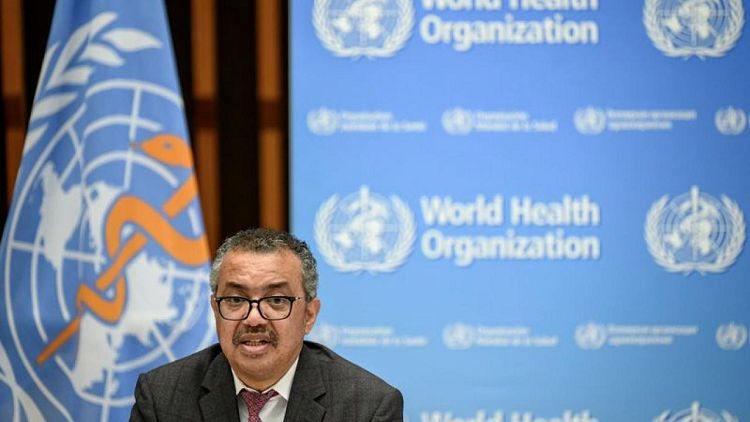GENEVA - The World Health Organization's chief said on Friday his home Tigray region in northern Ethiopia was being subjected to a "systematic" blockade and people were dying because of a lack of supplies.
Tedros Adhanom Ghebreyesus did not say who he thought was stopping aid getting through to Tigray, where rebellious forces have been fighting a year-long war with Ethiopia's government.
Ethiopia's government has denied blocking aid to Tigray and has said it is rebuilding infrastructure. The United Nations has repeatedly called on the government to get aid into the north, and has said that shortages there are "man-made".
Government spokesperson Legesse Tulu did not immediately respond to a request for a comment on Tedros's statement on Friday.
"People are dying because of lack of supplies," Tedros, who is an ethnic Tigrayan, told a press briefing in Geneva.
"We cannot send supplies and medicines to Tigray because it is under blockade, and the blockade is systematic," he said. In unusually frank public remarks, he described the situation in Ethiopia as "really distressing".
War broke out in November 2020 between Ethiopian federal troops and forces loyal to the Tigray People's Liberation Front (TPLF), the ruling party of Tigray. Thousands have been killed in the conflict, which has since spread into two neighbouring regions in northern Ethiopia.
Soon after the conflict started, the Ethiopian army's chief of staff accused Tedros of backing the Tigray rebels. He denied that.
The WHO Director-General, who was Ethiopia's health minister during the era when the TPLF dominated national politics, has repeatedly said he is not taking sides in the war.
No U.N.-organised humanitarian supplies have entered Tigray for more than three weeks, the U.N. said on Thursday, adding some 364 trucks are waiting in a neighbouring region, pending authorization from authorities to proceed.
Around 80% of essential medicine is no longer available in Tigray and most health facilities are not functioning, the U.N. said in a report on Thursday.
The warring parties have so far rejected calls from the United States, the United Nations and the African Union for a ceasefire. Both the government and the Tigrayan forces have set conditions that the other rejects.
